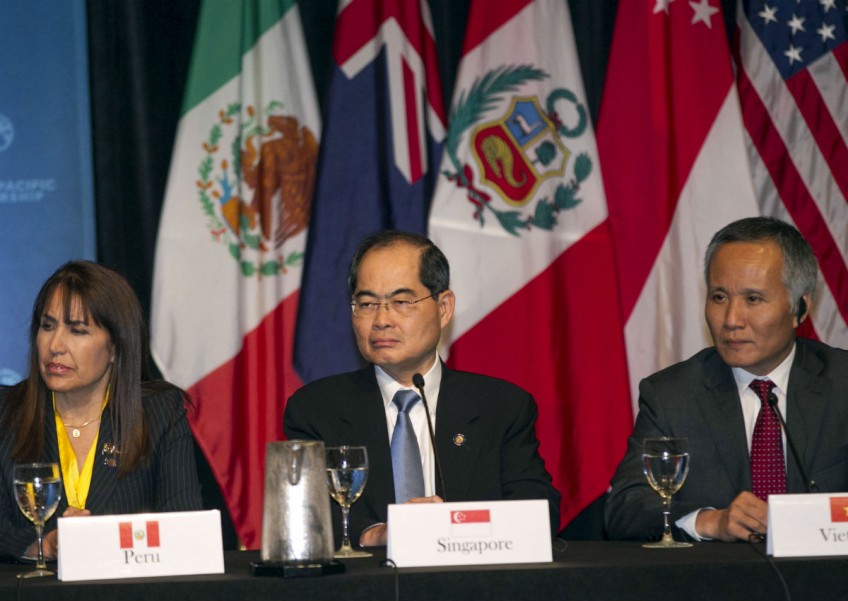No consensus on next TPP meet; drugs a key hurdle: Japan official

TOKYO - No agreement has been reached on the date for a new round of talks on a pan-Pacific trade deal after ministers failed to overcome feuds over auto trade, dairy goods and next-generation drugs, a senior Japanese official said on Thursday.
Failure to clinch a deal was a setback for U.S. President Barack Obama's pivot to Asia and efforts to counter China's clout. Japanese Prime Minister Shinzo Abe has also cast the deal as crucial to his efforts to reboot Japan's stale economy.
Ministers from the 12 nations negotiating the Trans-Pacific Partnership (TPP), which would stretch from Japan to Chile and cover 40 percent of the global economy, fell short of a deal at talks on the Hawaiian island of Maui, despite early optimism. "We hope to meet before the end of the month," the senior Japanese official told Reuters, declining to be identified due to the sensitivity of the issue. But he added, "We have been seeking to have a date, but it has to be decided in consensus, and there is no consensus on the date." Japanese Economics Minister Akira Amari had said ministers aimed to meet in August, but on Thursday Agriculture Minister Yoshimasa Hayashi said that timing looked tough, Kyodo news agency reported.
New Zealand's push for a significant opening of dairy markets in the United States, Japan, Canada and Mexico and a dispute over rules of origin for cars were two key obstacles to concluding a deal, the official said.
Rules of origin determine when a product is designated as coming from within the free trade zone.
U.S. insistence on a 12-year protection period for data used to develop biologic drugs proved a major stumbling block, the Japanese official said, as the issue was key to securing U.S. congressional approval for the pact. "It was going remarkably well, compared to past meetings and people were in an excited mood," he said. "But when biologics came (up), it was clear there was no possibility of having any agreement reached." Some areas, such as rules on investment, the environment and state-owned enterprises, had seen "remarkable progress", the official said.
He warned against the danger of losing momentum but expressed confidence a deal would be reached. "Countries are committed to concluding this. So much has been done and only a few (issues) are remaining," he said.